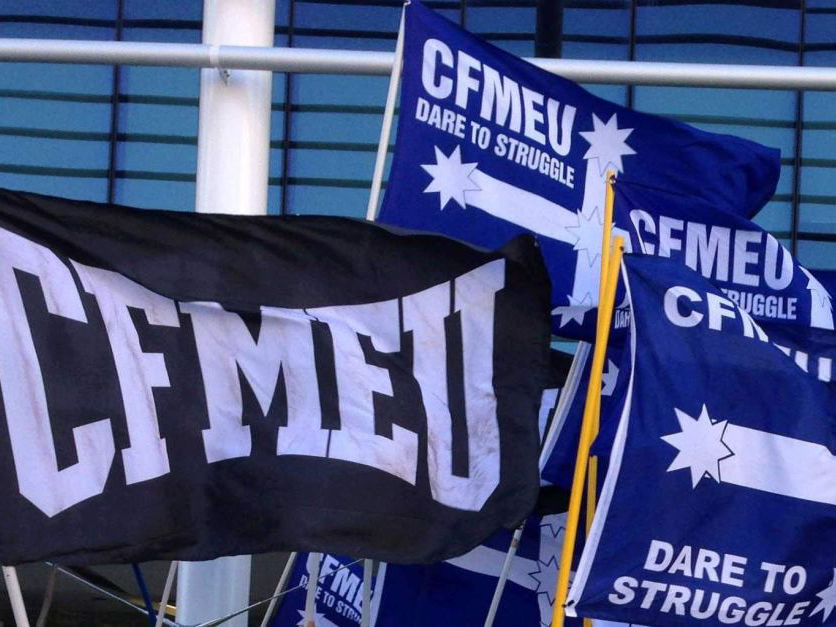The Australian Capital Territory branch of the Construction, Forestry, Maritime and Mining Union, along with three officials, has been fined after the Federal court after it was revealed they engaged in unlawful picketing at a Canberra construction site in May of 2018.
Officials Assistant Secretary Zachary Smith, organiser Joshua Bolitho, and CFMMEU ACT secretary Jason O’Mara were ordered by the judge to pay the penalties personally, with a stipulation that they cannot use union funds to pay the penalties.
The fines resulted from action at the Constitution Place Project in central Canberra on 15 May 2018, when the two union officials and organiser came together with 20 other people to block pedestrian and vehicular access to the site, using cars and union members.
Locks and chains were also used on the gates of the entrance to the site, and the project managers required bolt cutters to regain access to the site. Police were called to the unlawful picketing, which lasted for two hours.
Justice Katzman, of the Federal Court, explained that “it is evident that neither the penalties imposed in the past nor the repeated imposition of penalties has had any deterrent effect. Indeed, it is reasonable to infer that the Union takes the view that paying penalties is merely a cost of doing business.
“In the absence of evidence to the contrary and in the light of its appalling record, the inference is open that the Union has done nothing to encourage its officers and employees to comply with laws that stand in the way of its industrial objectives.
“There was no suggestion, let alone evidence, to indicate that the Union has established any systems or processes to ensure that its officers or employees comply with the law.”
Justice Katzman also noted that there was no remorse from the defendants, explaining that they “eschewed any notion that they were entitled to any leniency because their admissions represented an acceptance of wrongdoing, let alone a “suitable and credible expression of regret”.
“Indeed, none of the respondents offered an apology or exhibited any contrition.”
“I accept that the conduct of the union officials was serious. The combination of the deliberate obstruction of entry to the project site, the refusal to remove vehicles when asked, and the use of chains and locks without authorisation from the site’s occupiers put the contraventions in the serious category.
“None of the men expressed contrition or gave any indication that he would not re-offend if the opportunity arose again. Unless the burden is imposed on them, they will not feel any sting of the Court’s orders.
“As long as the union officials can look to the Union to pay the penalties or reimburse them, they have little incentive not to reoffend. Requiring them to pay the penalties personally serves as a deterrent, not only to them but also to others in similar positions. It will bring home to them that they cannot act in contravention of the Act secure in the knowledge or belief that the Union will pick up the tab.”




